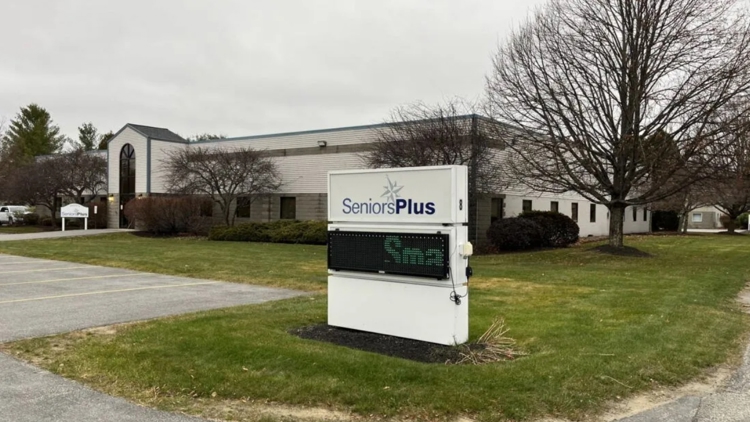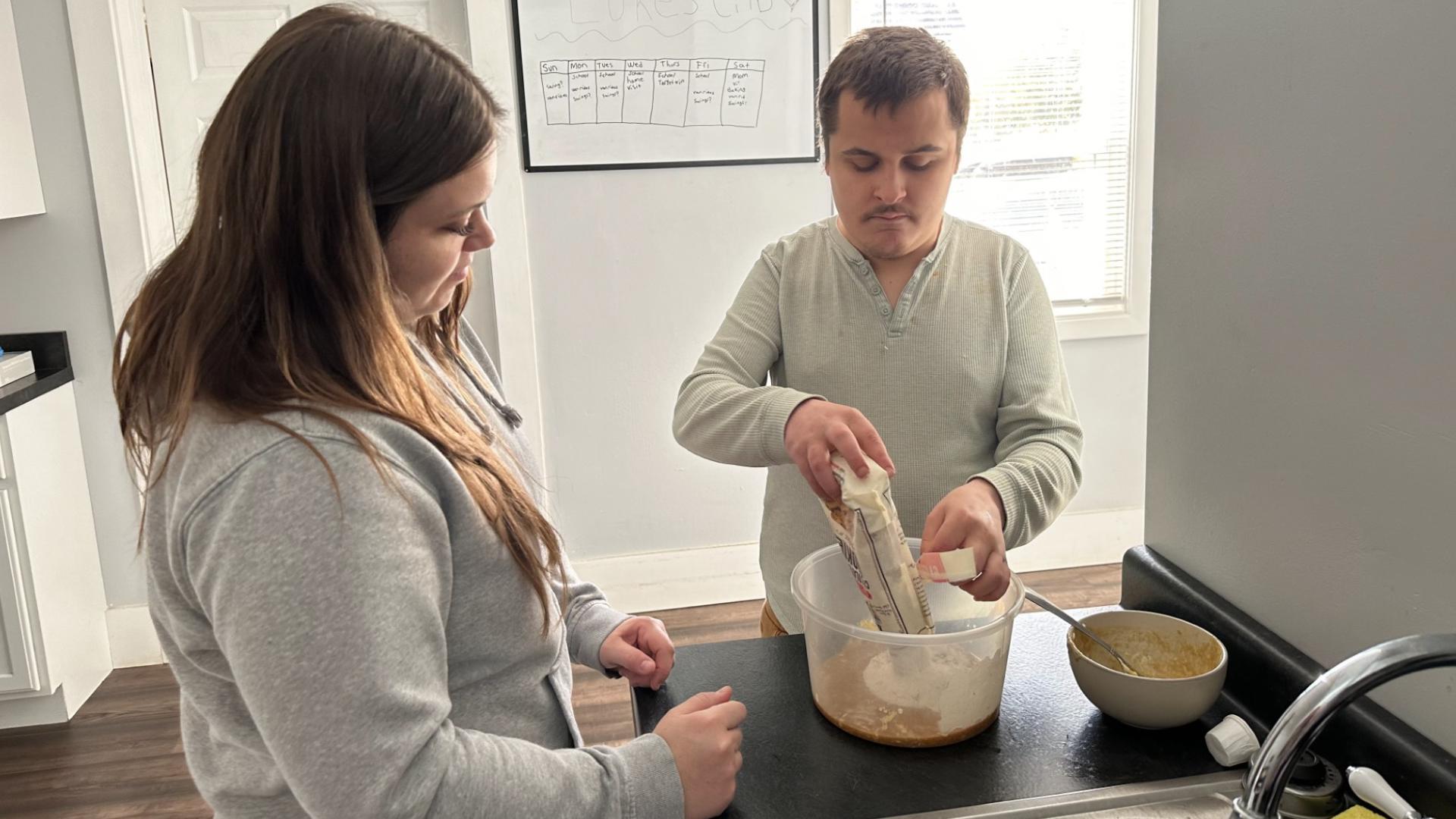MAINE, USA — Two of the three agencies in the state that pair people with in-home nursing care are no longer accepting new clients who are approved for services under the Section 96 MaineCare program.
SeniorsPlus stopped accepting new Section 96 referrals more than a year ago because the state’s method for calculating reimbursement is “not workable” and cost the agency about $600,000 last year, said Betsy Sawyer-Manter, president and CEO of the nonprofit.
“We just can’t continue to subsidize the cost of doing business,” Sawyer-Manter said. “(And) because of the limitations in what we get reimbursed it limits what we can pay staff, which has an impact on our ability to attract staff to do the work. So it’s sort of this vicious cycle.”
SeniorsPlus has 29 care coordinators with six more positions currently open. They pay about $22 or $23 an hour, Sawyer-Manter said.
Alpha One, another care coordination agency, has also stopped taking new referrals. The nonprofit still has between 300 and 400 existing Section 96 clients, said Thomas Newman, the executive director.
The Maine Department of Health and Human Services is in the middle of updating reimbursement rates and expects final rate recommendations in April, spokesperson Lindsay Hammes said.
A third agency, Care Lync, is still accepting new referrals and Hammes said that the agency “has recently expanded its capacity and is keeping pace with current demand.”
Section 96 is one of multiple home care plans that allow Mainers who qualify for additional assistance to opt to receive that care in their homes.
A recent state report found that those who have been approved often struggle to find caregivers to fill all their hours: The share of people on Section 96 who are “partially staffed” went from 47 percent in November 2022 to 62 percent in December 2023. The number of enrollees was about the same.
SeniorsPlus stopped taking new Section 96 referrals in August 2023. The agency’s pool of clients has since decreased from about 1,600 to about 1,000 as people stopped needing the services, moved into a nursing home or died, Sawyer-Manter said.
The number of people in the program fluctuates, she said, but usually the demand is about the same or growing due to Maine’s aging population. Care coordination agencies help clients by doing assessments, working with their providers, monitoring their care and doing home visits.
Sawyer-Manter’s concerns have to do with the reimbursement system. Section 96 is a state plan under MaineCare in which agencies are reimbursed for services per member per minute. This means if a care coordinator does a home visit, they would be paid for the time spent with the client, but not for the transportation to and from the client’s home.
These agencies get reimbursed a set amount per month, rather than per minute, for a separate home care program for clients with higher needs, Section 19. SeniorsPlus performs similar work under each plan yet receives about $35 monthly per client for Section 96 and about $158 monthly for Section 19, said Betsy Sawyer-Manter.
For the fiscal year that ended in June, SeniorsPlus had a shortfall in its care coordination budget of $600,000, which Sawyer-Manter attributed to low Section 96 reimbursements. The organization managed to make up the difference through savings from other fee-for-service programs and donations, Sawyer-Manter said.
If the new rates are “reasonable” and no longer on a per minute basis, Sawyer-Manter said she’d be “delighted” to start taking new referrals again.
“I’m hopeful that the rate study is going to result in adequate reimbursement for the work that we’re doing so that we can get out of the cycle of losses and that we can also have adequate reimbursements so that we can pay our staff and be competitive in the market,” she said.
Newman, with Alpha One, said he shared Sawyer-Manter’s concerns about how Section 96 is billed and said the methodology adds a lot of administrative burden for tracking time.
Alpha One didn’t initially take referrals for Section 96 and only started to in 2019 when DHHS asked them to help out. Its client volume never reached the scale of SeniorsPlus but Newman said he was warned by SeniorsPlus that they were losing money on the program.
He added, however, that it is common for agencies across the state to pause and then restart referrals as they have the capacity to handle the demand.
Hammes, with DHHS, said the ongoing rate review effort will include care coordination under Sections 19 and 96, but did not respond directly to whether that would include a switch to reimbursing agencies per member per month.
“Maine home care programs have been remarkably resilient throughout and following the pandemic,” Hammes added. “Enrollment in Section 63, 19 and 96 grew by nearly 1,000 people between 2020 and 2024, a 17 percent increase.”
A third care coordination agency, Care Lync, has dramatically increased its operations in Maine to keep pace with the new referrals.
Gregg Golin, CEO of the Philadelphia-based, private-equity-backed company, said Care Lync had fewer than 10 case managers and had only been in Maine for about a year when the other agencies stopped accepting Section 96 referrals. Now Care Lync has more than 40 case managers – and he expects that to double in another year.
Care Lync operates in 10 states, but Golin said all but three of the case managers in Maine live here.
Keeping up with 125 new referrals a month seemed “insurmountable” at first, Golin said.
“But you can’t forget that one of the components is that if we said we would stop that, there would literally be a couple thousand Mainers deemed medically unable to take care of themselves sitting in their homes with no support,” he said.
Initially there was a queue of people waiting for services while Care Lync tried to ramp up operations and struggled with employee burnout and churn, Golin said. But they were able to stabilize the workload for case managers and within the next two or three months, he expects there will no longer be a waitlist.
In 2023, Care Lync had 600 clients enrolled in Section 96. So far this year, the agency has had nearly 1,100 clients.
Newman, with Alpha One, said he was pleased to hear Care Lync was planning to keep up with the referrals, as that contradicted what he had heard.
“If they are able to take all the Section 96 consumers, that’s wonderful. They should do it,” Newman said. “I certainly want to see the consumers in Maine served so if Care Lync is able to take them on and make that happen, that’s good news.”
Golin agreed that Section 96 should be paid per member per month and understood the other agencies’ financial concerns.
“It does make sense,” he said. “I just don’t know if I would be able to live with myself knowing that my negotiating piece was 125 elderly people that can’t take care of themselves.”
This story was originally published by The Maine Monitor, a nonprofit and nonpartisan news organization. To get regular coverage from the Monitor, sign up for a free Monitor newsletter here.



